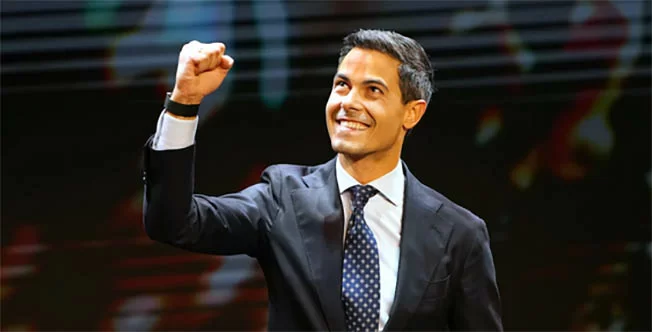In a landmark outcome for Dutch politics, the Democrats 66 (D66) party, led by 38-year-old Rob Jetten, has emerged as the largest party in the Netherlands following Wednesday’s parliamentary elections. According to initial exit polls, D66 is projected to secure 27 seats, surpassing Geert Wilders’ Party for Freedom (PVV) with 25 seats and the People’s Party for Freedom and Democracy (VVD) with 23 seats. This result signals a decisive shift toward political stability and collaboration, marking a departure from years of fragmentation and populist influence. Jetten, who could become the youngest and first openly gay prime minister in Dutch history, addressed supporters in The Hague, stating, ‘Millions of Dutch citizens have turned a page today. We are saying goodbye to the politics of negativity and hatred and embracing hope, reason, and respect.’ The election outcome reflects a broader trend toward the political center, with radical-right parties like the PVV losing ground. Meanwhile, the VVD and the socially conservative New Social Contract (NSC) are positioned around the center, while the GreenLeft-Labour alliance underperformed with approximately 20 seats. Shortly after the exit polls were announced, Frans Timmermans, leader of the GreenLeft-Labour alliance, resigned, acknowledging the need for ‘new energy and leadership.’ With no party nearing the 76-seat majority required to govern, coalition negotiations are expected to be lengthy and complex. Analysts predict Jetten will aim to form a broad center coalition, potentially involving the VVD, NSC, and one or two smaller parties, while ruling out collaboration with the PVV. Key campaign issues included purchasing power, migration, housing, climate, and trust in government. D66’s victory is widely interpreted as a call for stability, professionalism, and cooperation. Updated exit polls and preliminary vote counts are anticipated later today.
